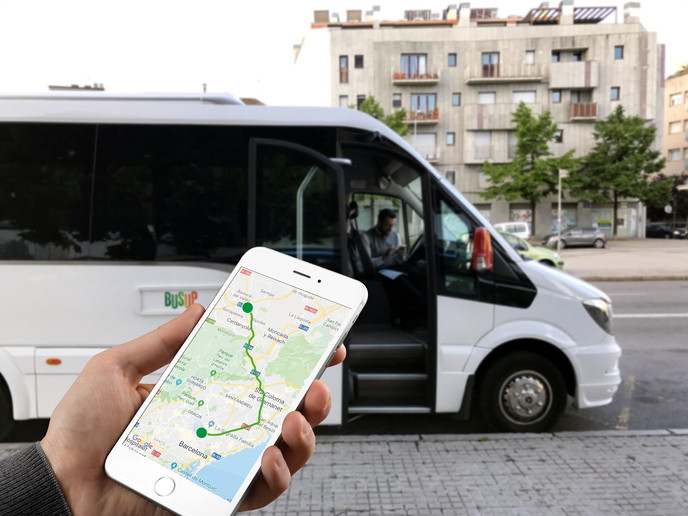Tailored buses for the shared economy
With the appearance of new mobility services, millennials have shifted from car ownership to car use (i.e. car-sharing), ridesharing (i.e. Blablacar), and ride hailing (i.e. Uber). As a consequence, corporations located in Greater Metropolitan Areas (GMAs), where public transportation is limited, are struggling to attract talented young people who prefer to live in the city centre and refuse to commute if no direct mobility solution is available. This is exactly the problem the EU-funded BUSUP project is solving today.
Elevating buses for the shared economy
When it comes to affordable, sustainable public transport, nothing beats taking the bus. The BUSUP project elevates this traditional mode of transport for today’s shared economy. The result is BUSUP, a personalised, shared corporate bus service. “BUSUP was created to provide a smart, medium-distance travel solution for corporations located in under-served suburbs and exurbs,” says Eva Romagosa, the project’s co-founder and Chief Innovation Officer. “We help these corporations solve their talent attraction and retention problems by offering the opportunity to join a network of private corporate buses, shared with other nearby companies, that they can use to provide employees with a sustainable and cost-effective commuting solution.” Every participating company has a personalised web booking platform where their employees can register, request a route, and book their monthly passes. Based on the data provided by the employees, the BUSUP algorithm identifies the optimal routes to maximise the offer and minimise the costs. BUSUP users can track the bus’s location via an intuitive, easy-to-use smartphone application. Similar to a ride-sharing service like Uber and Lyft, BUSUP does not own the buses, but instead partners with high-quality local bus operators that provide the services for their clients. One of the most attractive features of the BUSUP platform is that corporations can share the costs of the routes not only with nearby companies, but also with their employees. “Some of our clients believe employees should be responsible for part of the costs so they value the service and unsubscribe when they are not actually using it,” explains Romagosa. According to Romagosa, the most important result of the project is not this technological solution, but the fact that BUSUP has successfully launched a new shared mobility service capable of resolving corporate commuting issues in GMAs. “The BUSUP solution helps our clients improve their talent attraction and retention strategies, cut their mobility costs in half, and significantly reduce their carbon footprint,” Romagosa says.
A mobility solution for Europe
BUSUP commuting services are currently available in Barcelona, Madrid, Lisbon, and Sao Paulo. BUSUP also provides similar services to events like music festivals (i.e. Lollapalooza, RockinRio, etc.) and for private schools. The project, which was finalised in December 2018, is currently serving more than 100 corporate clients and expects to close the year with EUR 2 million in revenue. This sky rocketing start has encouraged its founders to look further ahead: “We want BUSUP to be Europe’s leading corporate mobility solution,” says Romagosa.
Keywords
BUSUP, mobility services, shared economy, public transportation, car-sharing, ridesharing, Blablacar, ride hailing, Uber, Lyft







